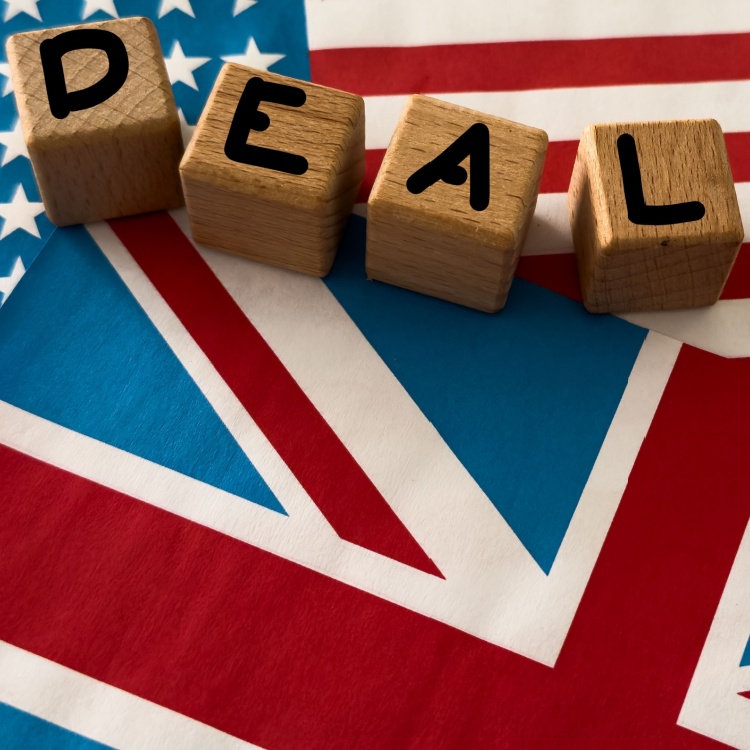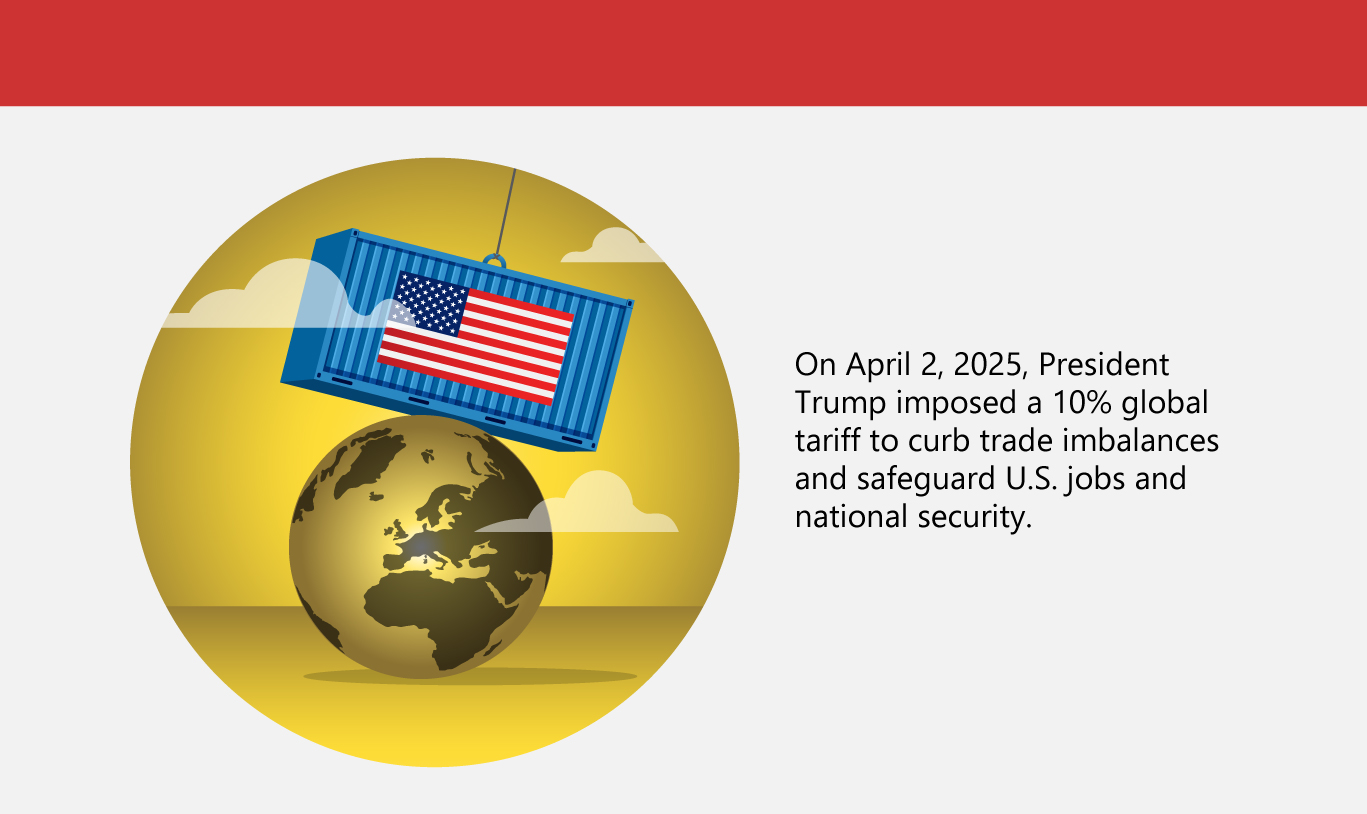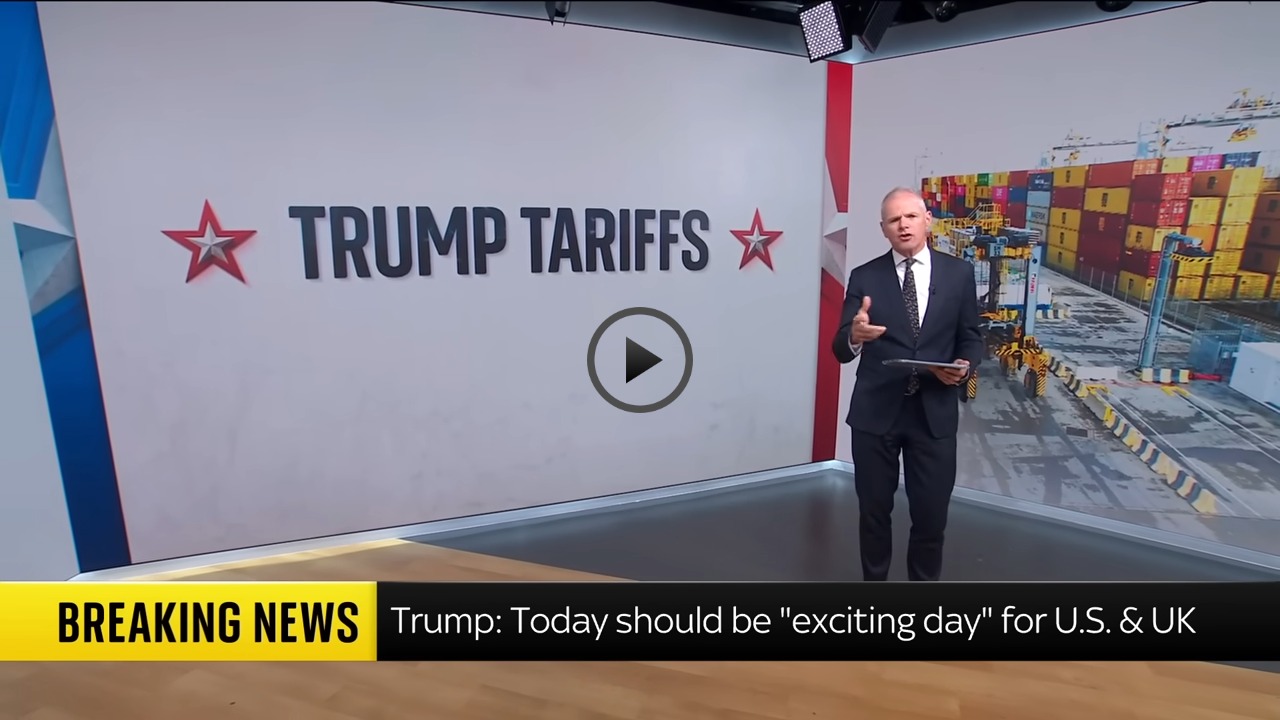The US-UK Deal: What It Means

Since President Donald Trump raised tariffs, the UK has been the first to strike a trade deal with the US. While most UK goods still face a 10% import tax when entering the US, this new deal cuts or removes tariffs on some British products. In return, it opens the UK’s industrial market to American businesses, creating new export opportunities and boosting trade between the two nations.
The United States and the United Kingdom unveiled the outline of a future-ready trade agreement in early May, marking a major step forward in U.S.–UK economic ties. From the Oval Office, former President Donald Trump stood alongside UK Ambassador Peter Mandelson and U.S. Commerce Secretary Howard Lutnick, describing the agreement as a major milestone.
UK Prime Minister Keir Starmer praised the agreement as “historic,” as the UK became the first nation to strike a trade deal with the US since Trump’s tariff increases. While final terms are still being worked out, Trump said the deal is nearly complete and stressed that fairness and reciprocity are key principles guiding international trade.
After weeks of negotiations, the two countries reached a trade agreement to ease recent tariff-related tensions. Talks began following the US decision on April 5 to impose a 10% import tax on most British goods, along with a steep 25% tariff on UK-made cars, steel, and aluminum.
While the US later paused higher tariffs on many countries, the UK remained subject to these specific duties. The reason? The US holds a trade surplus with the UK, importing less than it exports, making the UK a lower priority for further penalties. This new deal not only lifts or reduces some of those tariffs but also holds broader implications for global manufacturing, as it may influence how goods are sourced, produced, and traded between major economies.
(Also read: Trump vs. Taiwan: Who Will Win the Chip Battle?)
Key details of the agreement
The White House stated that the agreement is designed to enhance U.S.-UK collaboration, particularly benefiting manufacturers and agricultural producers. It removes barriers, helps American businesses compete better in the UK market, and simplifies customs for US exports.
The agreement also sets strong standards on intellectual property, labor rights, and environmental protections. Additionally, it supports key sectors like aerospace and pharmaceuticals by ensuring secure and reliable supply chain management.
-
Automotive market
Under the new terms, the US will reduce tariffs on the first 100,000 British-made cars each year to 10%, while any imports beyond that threshold will remain subject to a 27.5% duty. The UK’s 10% tariff on US cars may change, as the US seeks a 2.5% rate. The deal also allows tariff-free exports of Rolls-Royce engines and aircraft parts, benefiting the aerospace engineering sector.
(Also read: Can Trump Break the EV Industry?)
-
Beef
The deal expands a tariff-free quota for US beef exports to the UK from 1,000 to 13,000 metric tons. The UK insists on supplier quality by upholding its strict food standards and banning hormone-treated meat despite US pressure to relax rules. Both countries benefit from the reciprocal agreement, while UK consumers’ concerns about American meat safety are acknowledged.
-
Steel & aluminum
The 25% US tariff on UK steel and aluminum imports has been lifted, easing pressure on British Steel, a major player within the steel manufacturing market. However, a new quota limits how much can enter tariff-free, with details unclear. Tariffs also affect products made from these metals, raising questions about supply chain rules and quotas.
-
Pharmaceuticals
The details on pharmaceuticals in the trade deal remain unsettled, with both countries set to continue talks. Pharmaceuticals is a major export worth around $8.1 billion from the UK to the US, and $4.9 billion from the US to the UK. Medicines are crucial in outsourcing and supply networks, with most of them facing low or no tariffs to keep prices affordable.
-
Digital service tax
The UK's 2% digital services tax is unchanged, a major sticking point. This tax applies to tech companies earning over $620 million globally and $30 million from UK users, hitting giants like Meta and Google. The UK earned nearly $440 million from this tax in its first year. The US called the tax unfair and urged its removal.
-
Ethanol
The UK removed tariffs on US ethanol imports, including bioethanol. Experts argue that this may boost the renewable energy market by increasing supply, but could also create tougher competition for British crop farmers.
Reactions and opinions on the deal
The UK-US trade deal has drawn reactions, reflecting a balance of optimism and caution. UK businesses generally welcome the agreement, seeing it as a boost for trade and product development, especially in sectors like automotive where tariff removals ease export barriers. The deal is viewed as strengthening ties with the US, a key trading partner, and supporting growth prospects.
However, some industries remain uncertain about the deal’s full impact. The steel sector, for example, awaits clarity on quotas and rules, unsure if tariffs will be effectively lifted. Meanwhile, farmers express concern that agriculture—particularly beef and bioethanol—bears disproportionate costs to facilitate tariff removals for other sectors. This prompts concerns about maintaining equitable terms in future negotiations over time.
Economists advise caution, highlighting that the deal covers only limited items and does not represent a comprehensive trade agreement. Although some tariffs have been reduced, others remain high compared to previous levels, maintaining cost pressures for importers and consumers. This uncertainty complicates business planning, potentially limiting investment and hiring decisions.
On the US side, the reduced tariffs may ease some burden but still present challenges. Consumers might face higher prices, and companies reliant on trade may continue operating in a climate of unpredictability. The deal offers relief but stops short of fully resolving the uncertainty caused by past tariffs, leaving businesses and investors cautious about the future.
In summary, the UK-US deal is welcomed for its potential to enhance trade and support key industries, yet lingering questions about tariff details, sectoral impacts, and overall trade stability temper enthusiasm. The evolving trade landscape means ongoing negotiations and adjustments will be crucial to secure broader and more balanced benefits. As one of the Top 20 EMS companies in the world, IMI has over 40 years of experience in providing electronics manufacturing and technology solutions.
As one of the Top 20 EMS companies in the world, IMI has over 40 years of experience in providing electronics manufacturing and technology solutions.
We are ready to support your business on a global scale.
Our proven technical expertise, worldwide reach, and vast experience in high-growth and emerging markets make us the ideal global manufacturing solutions partner.
Let's work together to build our future today.
Other Blog



